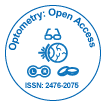Unsere Gruppe organisiert über 3000 globale Konferenzreihen Jährliche Veranstaltungen in den USA, Europa und anderen Ländern. Asien mit Unterstützung von 1000 weiteren wissenschaftlichen Gesellschaften und veröffentlicht über 700 Open Access Zeitschriften, die über 50.000 bedeutende Persönlichkeiten und renommierte Wissenschaftler als Redaktionsmitglieder enthalten.
Open-Access-Zeitschriften gewinnen mehr Leser und Zitierungen
700 Zeitschriften und 15.000.000 Leser Jede Zeitschrift erhält mehr als 25.000 Leser
Indiziert in
- Google Scholar
- RefSeek
- Hamdard-Universität
- EBSCO AZ
- Euro-Pub
- ICMJE
Nützliche Links
Open-Access-Zeitschriften
Teile diese Seite
Abstrakt
Knowledge about Cataract and its Risk Factors among an Adult Population in the Cape Coast Metropolis, Ghana
Abdul-Sadik A, Abdul-Kabir M, Akowuah PK, and Forfoe S
Objective: The aim of the study was to assess the level of knowledge about cataract and its risk factors among an adult population in the Cape Coast metropolis, Ghana.
Method: A descriptive cross-sectional study involving 250 participants. Interview of participants was conducted using a structured questionnaire. The questionnaire was developed following the World Health Organization (WHO) guide on developing knowledge, attitude and practices (KAP) survey.
Results: Majority 52.80% of the participants was males; 54.00% of the participants were unemployed and 59.60% of the participants were either junior high or senior high school educated. Ages of participants ranged from 23 years to 75 years with a mean age of 49.57 years. 85.60% of the participants were familiar with the term ‘cataract’. Over half of the participants defined cataract correctly and were able to identify the most common symptom of cataract. Less than half (44.86%) of the participants correctly identified surgery as the standard treatment for cataract. Less than half of the participants were aware of sunlight (UV) exposure, diabetes, trauma, steroid use, smoking and heredity to each be a risk factor for cataract development. A statistically significant association was found between level of education and knowledge of cataract (OR=4.31, p=0.03332). Participants who had previously undergone cataract surgery were found to be more likely to know about cataract (OR=11.42, p=0.0908).
Conclusion: Overall, over 70% of participants had low knowledge of cataract. There is a dire need for public health educational programs to improve the level of knowledge and awareness in the study population.
Zeitschriften nach Themen
- Allgemeine Wissenschaft
- Biochemie
- Chemie
- Genetik und Molekularbiologie
- Geologie und Geowissenschaften
- Immunologie und Mikrobiologie
- Klinische Wissenschaften
- Krankenpflege und Gesundheitsfürsorge
- Landwirtschaft und Aquakultur
- Lebensmittel & Ernährung
- Maschinenbau
- Materialwissenschaften
- Medizinische Wissenschaften
- Pharmazeutische Wissenschaften
- Physik
- Sozial- und Politikwissenschaften
- Umweltwissenschaften
- Veterinärwissenschaften
Klinische und medizinische Fachzeitschriften
- Anästhesiologie
- Augenheilkunde
- Betrieb
- Dermatologie
- Diabetes und Endokrinologie
- Gastroenterologie
- Genetik
- Gesundheitspflege
- Immunologie
- Infektionskrankheiten
- Kardiologie
- Klinische Forschung
- Medizin
- Mikrobiologie
- Molekularbiologie
- Neurologie
- Onkologie
- Pädiatrie
- Pathologie
- Pflege
- Toxikologie
- Zahnheilkunde

 English
English  Spanish
Spanish  Chinese
Chinese  Russian
Russian  French
French  Japanese
Japanese  Portuguese
Portuguese  Hindi
Hindi